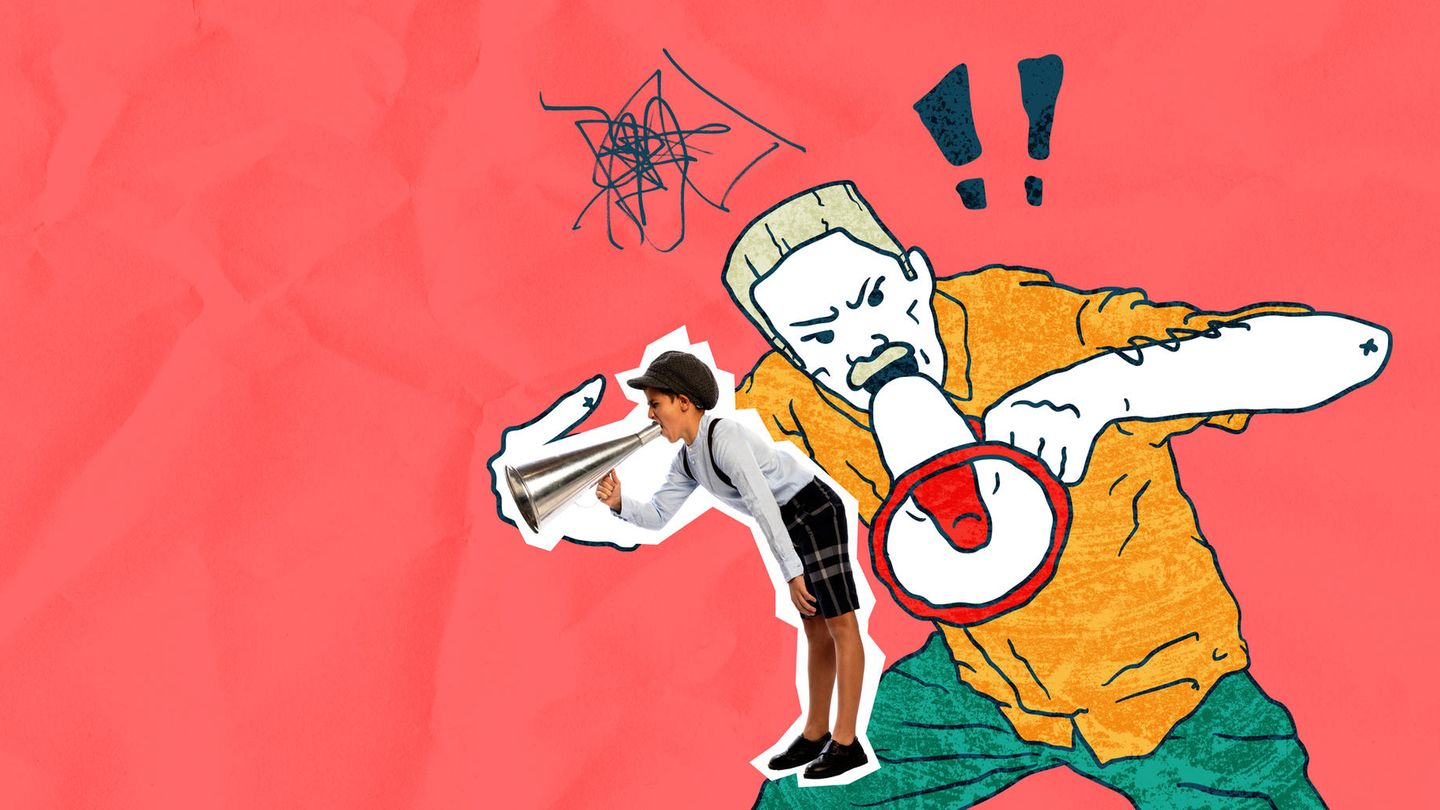Those who mainly heard criticism as a child find it difficult to deal with mistakes in adulthood – but also with affection.
Something wonderful happens to you, something that you may have been working towards for a long time or that just happened to fall into your lap. How do you feel?
Something bad happens to you, some mishap, caused by you or beyond your control. How do you feel?
The answers to both questions may be clear: In the first scenario we feel happy and satisfied, in the second we are sad or maybe a little annoyed with ourselves. But what is much more important is the expression, the depth of our emotions, in both situations.
Like scientists in one study have found that children’s brain activity in response to reward and loss is comparatively lower when their mothers are particularly critical of them. Means: They felt losses more intensely, while their neural responses to gains were minimized and deadened. “Long-term, this triggers a cycle of self-esteem issues and the search for validation at every turn that continues into adulthood,” the researchers write.
Which brings us back to the two initial situations: How do you feel in the respective scenarios? Do you feel able to feel joy and satisfaction in your accomplishments? Or is it more of a feeling of self-evidence? Because you had nothing else to deliver but success? And what about the scenario where you have a mishap? How deep is the anger about one’s own shortcomings? How big is the frustration and the feeling of not being good enough?
Maybe you too were criticized very harshly in your childhood, maybe the demands were immense, the pressure huge – and you can still feel the after-effects to this day. But if you know that he:she is very sensitive to (perceived) inadequacies, mistakes and criticism, you are more likely to break through these patterns and find a healthier relationship with yourself – here are some signs to look out for.
Possible signs that you were criticized too much as a child
Does the thought of trying something new make your forehead sweat with the risk of “failing”? Compliments bounce off you, but criticism hits you to the core? All of these are possible signs that you were too often subjected to harsh criticism as a child.
You are accompanied by a great fear of failure
Making mistakes is part of life. Very few people like to do them, but most learn from them (sooner or later) and do it differently next time. And that’s exactly what’s valuable about mistakes: They cause change, growth. If no one made mistakes, the world would be pretty quiet. But people who were heavily criticized as children see things differently, after all, mistakes in their childhood were not seen as a natural, almost desirable, part of the process, but as a weakness, as a red rag to be avoided at all costs. When mistakes are treated as failure, it fuels an immense fear – which can be paralyzing.
This can lead to a tendency not to try new things at all – after all, we are “prone to make mistakes” when we start a new hobby. an unhealthy one behavior patternin which perfection seems to be the top priority – and ultimately only leads to absolute standstill.
You find affection very difficult to accept
You’re wearing your favorite earrings, you like the colour, the shape and how they look on you – but when someone asks you about them, maybe even compliments you on them, you dismiss them: “Oh, the old things? I have them in one drawer found.” The compliment, the words you meant to love, bounce off you completely – maybe because they weren’t tied to any conditions? After all, you didn’t do anything to “deserve” the compliment. Or maybe you’re just not used to hearing kind words because it was a rarity in your family home and you never really learned how to deal with kindness like that.
Here it can be helpful to give yourself nice words on a regular basis: you can praise yourself for tasks that you have mastered well, give yourself compliments on your outfit… In short: treat yourself as you would treat someone who is very important to you.
You react very sensitively to criticism
Criticism and mistakes are first and foremost one thing: nothing bad per se. Both give the chance for change, for a (at best positive) change. But those who grew up with constant and harsh criticism might see things differently. Then every comment feels like a personal attack, hurts deeply and, in the worst case, can even tear relationships apart.
It may be that criticism takes you back to your childhood, when you were helpless and at the mercy of words and they seemed like absolute reality – why shouldn’t a parent tell the truth either? But we are no longer children. And we don’t have to let criticism get too close to us. First of all, it can be helpful to ask yourself: Is the criticism justified at all? Helpful? Does it give you the chance to develop yourself further? We don’t have to accept every criticism, sometimes a quick analysis helps to decide more objectively whether the comments are really an opportunity for growth – or the criticism is just misplaced, hollow and not to be taken seriously.
Sources used: psych2go.net, sciencedirect.com, tandfonline.com, theswaddle.com
